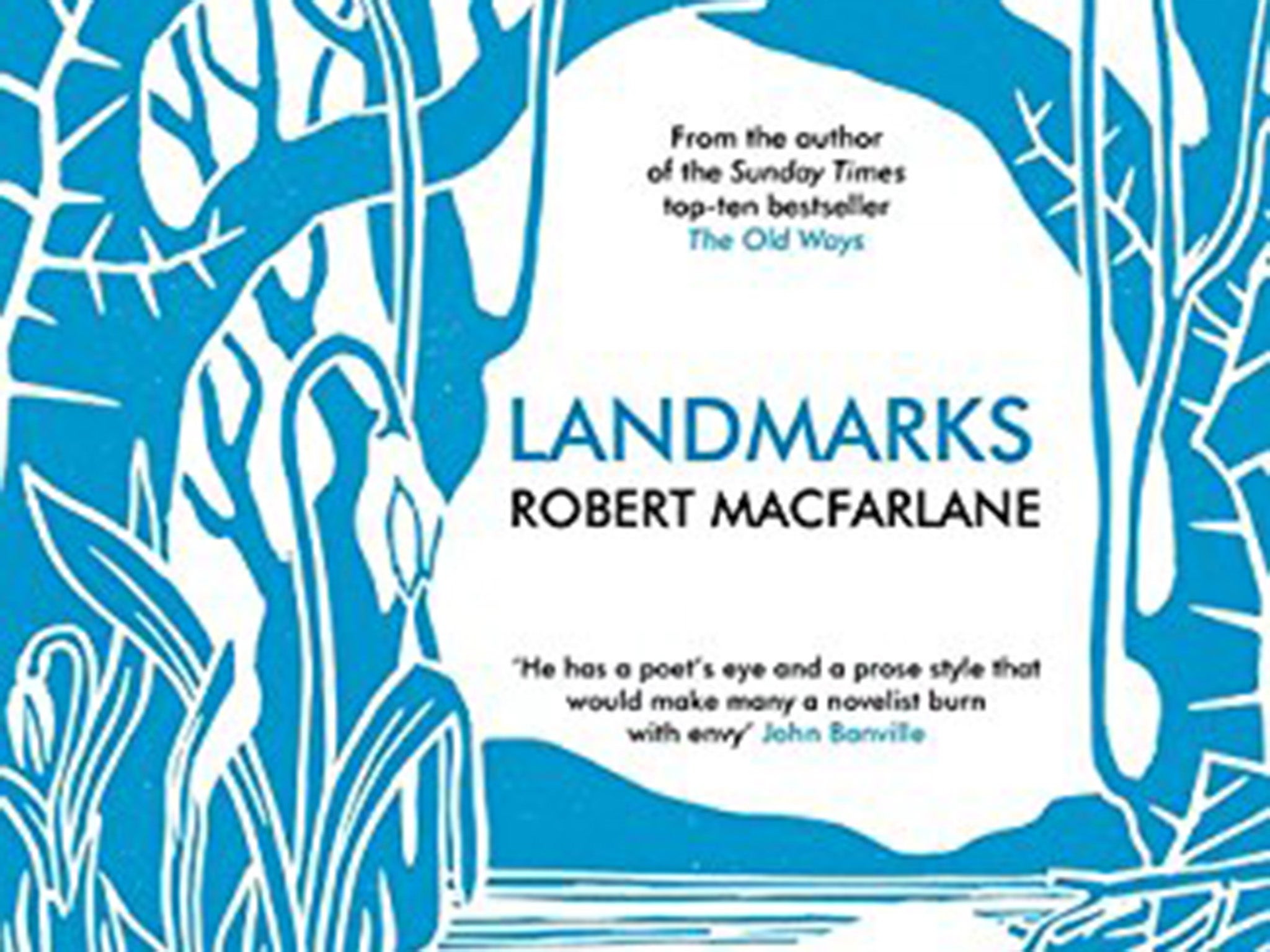Landmarks by Robert Macfarlane, book review: Oh, baby, it’s a wild word
Few books give such a sense of enchantment; it is a book to give to many, and to return to repeatedly

Your support helps us to tell the story
From reproductive rights to climate change to Big Tech, The Independent is on the ground when the story is developing. Whether it's investigating the financials of Elon Musk's pro-Trump PAC or producing our latest documentary, 'The A Word', which shines a light on the American women fighting for reproductive rights, we know how important it is to parse out the facts from the messaging.
At such a critical moment in US history, we need reporters on the ground. Your donation allows us to keep sending journalists to speak to both sides of the story.
The Independent is trusted by Americans across the entire political spectrum. And unlike many other quality news outlets, we choose not to lock Americans out of our reporting and analysis with paywalls. We believe quality journalism should be available to everyone, paid for by those who can afford it.
Your support makes all the difference.Part poet, part walker, part don, Robert Macfarlane has become our leading writer of a form of neo-Romanticism. Essentially, this is about getting us to pay more attention to the natural world – an attentiveness which, in the face of human depredations and climate change, has taken on a particular moral urgency.
Landmarks is his fifth book and is less about personal journeys through the British landscape than the specific, local language and words referring to it which are in danger of being lost. Having this “shadow language” is, he contends, essential to being able to notice and value nature more precisely. A few (drizzle, scree) are still familiar, but many evocative, useful and beautiful ones, from “Smirr” (fine misty rain, Gaelic) to “monek” (mineral rich ground, Cornish), are not. This book weaves together glossaries of words referring to topography, weather and animals with vivid portraits of the authors who have influenced Macfarlane’s own writing: Nan Shepherd, Roger Deakin, Richard Mabey and the “keeper of lost words” Richard Skelton.
As his book progresses, he introduces many of these words into his own text, so that vividly onomatopoeic sentences such as “the wind flung rain against the windows with a fat clatter” are counter-pointed by unfamiliar nouns, verbs and adjectives that sparkle like ammil (a Devon word meaning the effect of morning sunlight on hoar frost.)
The mood is one of celebration, and, inevitably, of defence of what nature is, despite our insistence on reducing everything to cost benefit analysis. Macfarlane is alert to the danger posed by all nature writing of tipping into sounding like Molesworth’s Fotherington-Thomas; these are not the kind of over-ripe ramblings satirised by Evelyn Waugh in Scoop, but the product of an active academic intelligence and emotional generosity, irradiated by a profound sense of wonder.
Landmarks feels like his masterpiece, an exploration on the links between language and landscape that has taken half a lifetime to collect. An especially moving chapter called “Childish” is about the way “what we bloodlessly call ‘place’ is to young children a wild compound of dream, spell and substance”, for which they invent new words. Macfarlane appears not to have lost this rich apprehension himself.
Few books give such a sense of enchantment; it is a book to give to many, and to return to repeatedly.
Join our commenting forum
Join thought-provoking conversations, follow other Independent readers and see their replies
Comments